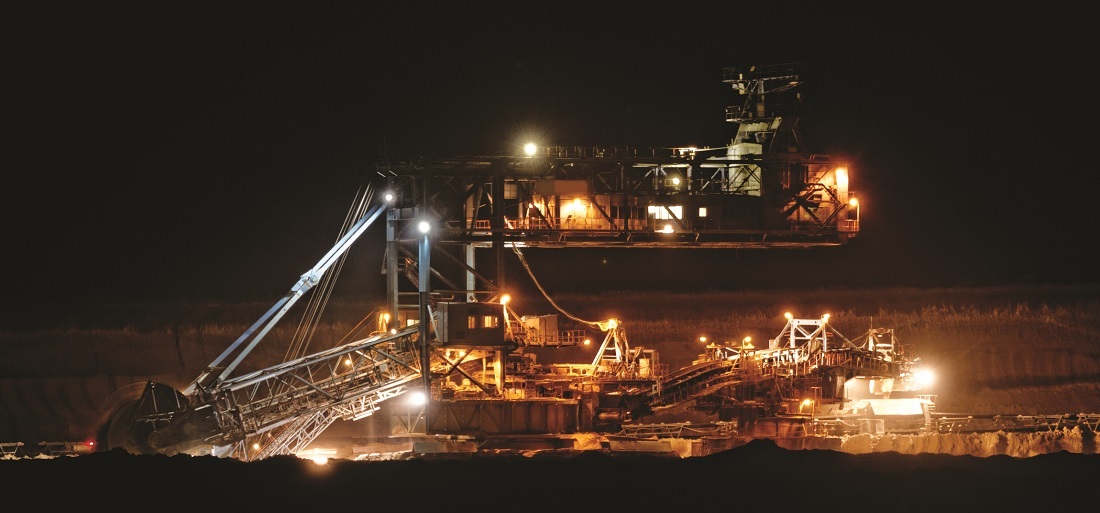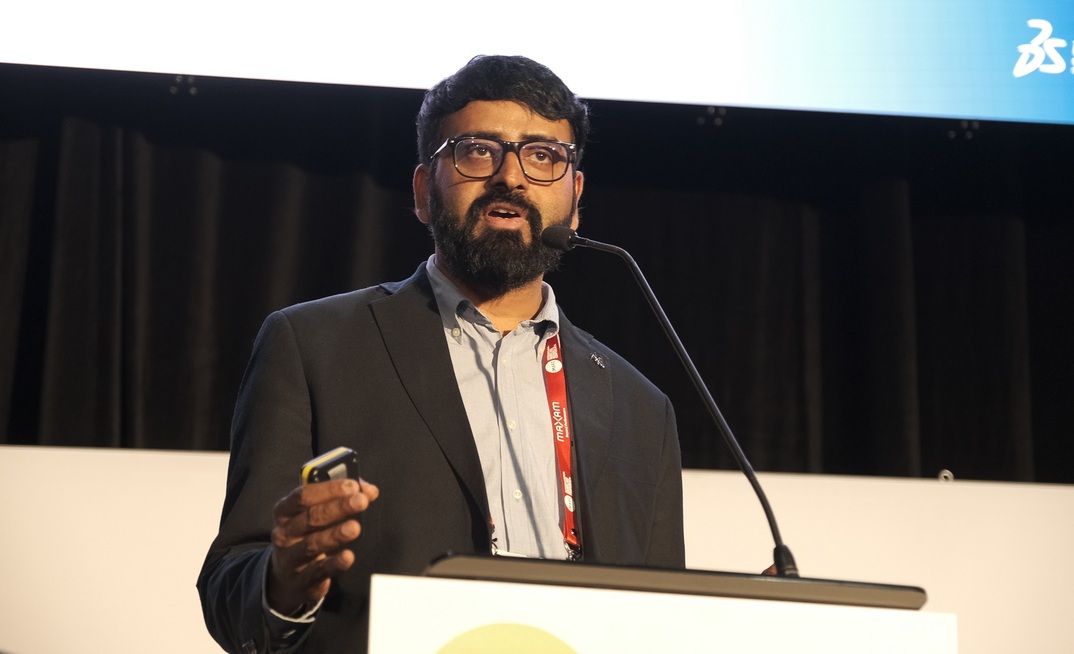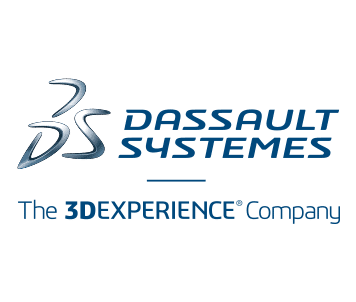"Miners are more and more interested in what non-miners are doing to improve business processes," he says.
"They are keen to learn more about the experiences we have in these other industries.
"I went into a meeting with a mining company representative recently. The miner wanted to speak to a manufacturing expert. I think the intent is more prevalent now among mining companies to replicate the best practice business processes we have seen develop in other industries, such as the automotive, aerospace and defence industries.
"It is really gaining momentum."
A lean manufacturing veteran who started his "lean journey" in the 1990s with India's TRW Rane and then TVS Motor, Mysore joined Dassault Systemes after it acquired the robotics company he was working for in 2000, rebranding it (and several others) as DELMIA (Digital Enterprise Lean Manufacturing Interactive Application), which is now a leading manufacturing brand on the company's 3DEXPERIENCE Platform.
The Paris-headquartered company has worked closely with Airbus, Boeing, Toyota, Tesla and other leading aerospace, defence, and automotive companies not only on optimising collaborative product design, engineering, manufacturing, and simulation through Dassault Systemes' 3DEXPERIENCE platform, but on digital transformation of processes to streamline costs and speed product delivery to market. "We are not just talking about digitalisation or a 3D experience, we are rethinking the way aircraft are designed and operated, streamlining and speeding up our processes with customer satisfaction in mind," said one customer company CEO.
"Japanese manufacturing company executives have had a saying about going lean before you go digital," Prashanth says.
"But now digital transformation is helping to further refine lean manufacturing processes.
"Concepts like model-based enterprise and systems engineering, value stream mapping and waste elimination - really using advanced monitoring and data analysis to identify those opportunities for effective change - these things are certainly helping drive adoption of digital transformation technologies and in turn are helping to refine lean processes.
"Lean with digital is a great combination in terms of furthering the productivity improvements and sustainability ambitions of companies. Sustainability in manufacturing goes hand in hand with lean - so, lean and green. Digitalising is really helping some companies move ahead of the competition."
Prashanth says the automotive, aerospace and defence sectors continue to be leaders in the era of the fourth industrial revolution (FIR) and adoption of Internet of Things (IoT) enabled connected data management and data-led process optimisation.
"In mining we have seen the major investments in capacity expansion. There is a massive focus now on returns on those investments, but also on meeting customer demands and expectations. The market conditions are definitely changing"
"The landscape has moved very quickly over the past 4-5 years," he says.
But other industries competing for skills, leaders, social licence, capital and for market share in their respective fields are looking to close the performance gap.
"There are a few major construction companies that have started to adopt lean principles to eliminate a huge amount of waste in processes," Prashanth says.
"The concept of modular build and delivery to construction sites is gaining momentum, which is speeding up projects and reducing environmental impacts.
"The oil and gas industry is on the lean, FIR journey.
"People have said miners are 10 years behind discrete manufacturing oil and gas companies in their use of data, but I don't know. There are mining companies that have generally done really well in terms of automating schedule and operations management, and plant automation. It is the collaboration layer of process data management that is generally missing and a large part of that is down to the industry's historical dependence on often isolated technical and operations siloes.
"In manufacturing you see the information loop is closed and it is all about integration and collaboration on enterprise strategies with the supporting [digital] infrastructure. That underpins the type of quality and just-in-time delivery focus mining companies are striving for."
The 2004-2011 mining boom saw many companies rapidly expand production capacity to meet surging demand from China and developing economies. While some investment in integrated value-chain management technology marked the period, it was not seen as a big enabler of capacity - or capital - utilisation. That is now changing.
"The pressure for change is always driven by markets and economic conditions," Prashanth says.
"In mining we have seen the major investments in capacity expansion. There is a massive focus now on returns on those investments, but also on meeting customer demands and expectations. The market conditions are definitely changing.
"There is still a lot of pressure on the miner's bottom line; capital expenditures are viewed through a microscope and critical investments are being held back. So this is the need of the hour and certainly this is seen as a time for reengineering of business process improvements.

"A significant benefit miners are seeing here is that they do not have to reinvent the wheel when it comes to the technology being employed to achieve these business improvements. They share with the automotive, aerospace and other industries an absolute reliance on safety, and complex supply chains. There is the same continuous improvement focus.
"Mining companies have adopted some of the principles of lean manufacturing and now, in the digitalisation phase, there are significant opportunities for miners to adopt and build on the wins in manufacturing.
"One mining company CEO has said he wanted to bring in some of the best practices from the automotive industry. A few miners have taken a lead by considering their operations as smart factories - with connected plants and machines, and continuous data monitoring and acquisition to allow better, real-time decision making.
"The journey has started."
Mysore says another key aspect of this ‘parallel' journey for industry sectors is the empowering of workforces to allow maximum benefits to flow from technological advances.
"It's not just the networking of business processes, it's the people at the heart of business processes," he says.
"You cannot forget this fact.
"The automotive industry remains heavily reliant on the people, which has meant a sustained focus on continuous improvement of people using various technologies.
"There is a lot of attrition and turnover in mining, which people say is a problem. But that's also the reason for me to create the workforce of the future and to empower people through effective education and training. This is part and parcel of value network mapping and value network optimisation.
"I would say this has started to happen in mining, and it must happen. There is no real option.
"The real drivers of change in mining are no different to these other high-performance industries.
"We go back to basic principles.
"Avoid complexity. The second one is innovation to streamline business processes. The acceleration of innovation is extremely important. And then people. How do we enable people and create the workforce of the future, to ensure sustainability?
"They are the top three priorities, I believe, for any organisation in an era when connectivity and the use of timely, accurate data for precise automation will reshape competitive landscape, and markets will increasingly drive your production speed and quality."
Download the document - Adopting Manufacturing Philosophies to Improve Operational Stability
ABOUT THIS COMPANY
Dassault Systemes
Dassault Systèmes
Headquartered: Vélizy-Villacoublay, Paris, France. Tel: +33 (0)1 6162 6103.
Annual revenue: €3.8-€3.875 billion (projected 2019)
Market capitalisation: €37.35 billion (April, 2019)
Employees: 17,000
Core product: 3DEXPERIENCE design, analysis, simulation and intelligence software delivered via public or private cloud-based collaborative, interactive platform
Enterprise customers: 230,000
Industry segments: Aerospace & Defense, Business Services, Construction, Cities & Territories, Consumer Packaged Goods & Retail, Energy & Materials, High-Tech, Home & Lifestyle, Industrial Equipment, Life Sciences, Marine & Offshore, Transportation & Mobility
Leading mining software brands: Surpac, GEMS, Minex, Whittle, MineSched, PCBC, Insite



























